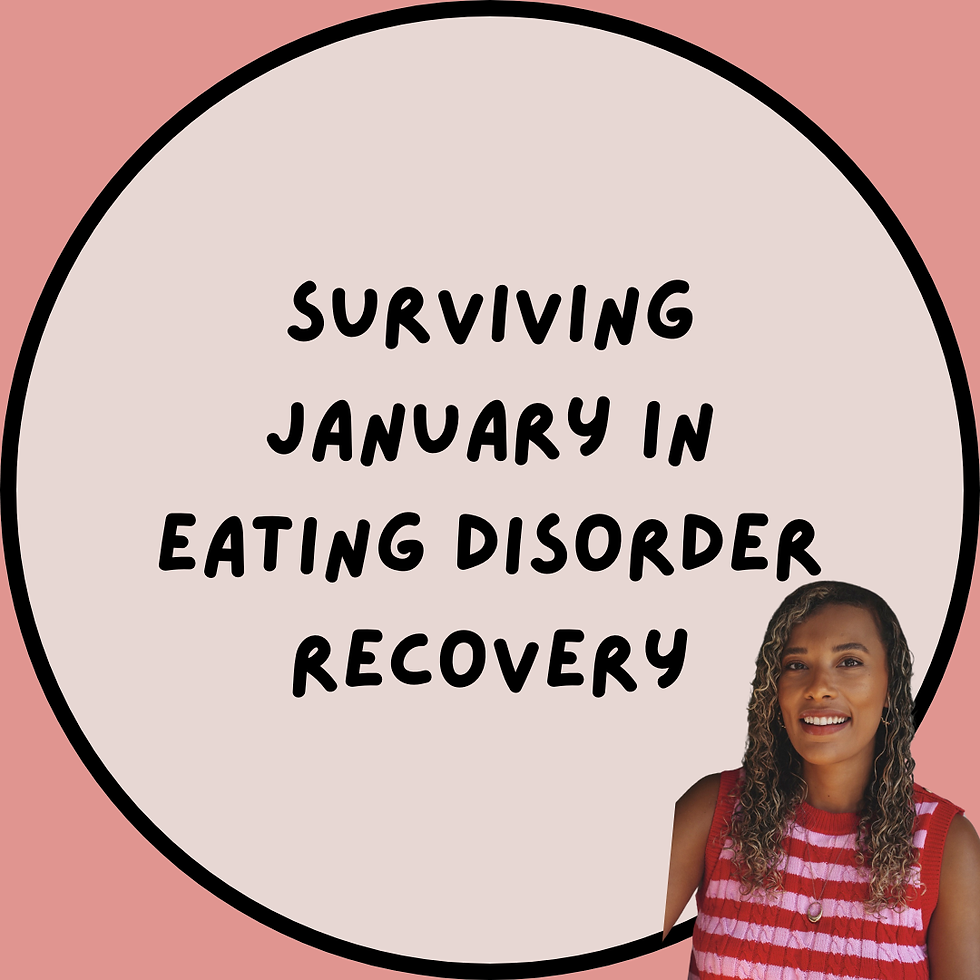How to spot misleading and inaccurate diet and nutrition information
- Beth Francois

- Jan 24, 2025
- 2 min read
In the age of social media and online influencers, it can be hugely challenging to navigate the influx of diet and nutrition information we are subjected to - particularly at this time of year.
This type of misinformation can be incredibly damaging, leading to confusion, anxiety, and disordered eating habits and beliefs. Here are my top tips for identifying and spotting unhelpful and inaccurate nutrition advice.
Is Someone Selling You a Product?
One of the easiest ways to spot potential misinformation is to consider whether those sharing the advice are in a position to be making money from you. Are they promoting a specific product, supplement, or program? If so, their primary motivation could be their own financial gain instead of your health & wellbeing. Always ask yourself: is this recommendation coming from a neutral, evidence-based perspective, or is it simply a marketing tactic?
Are They Suggesting One Singular Solution for Multiple Problems?
Be wary of claims that one product, drink, or supplement can solve a wide array of issues—from acne to weight loss, gut health, anxiety and hair, skin & nail health. Sweeping promises like this are often red flags for misinformation.
Are They Promising a Quick Fix?
Promises of instant results - like losing a certain amount of weight in a very specific short amount of time or experiencing an improvement in gut symptoms within days - are almost always unrealistic and falsified.
Does It Sound Too Good to Be True?
If it does, it probably is!!
Are They Dividing Foods Into 'Good' and 'Bad'?
Nutrition is nuanced. Labelling foods as inherently “good” or “bad” without context is overly simplistic and unhelpful. The nutritional value of food depends on an individual’s needs, preferences, and circumstances. Advice that approaches nutrition in a black and white way is hugely misguided and completely misses the importance of thinking about someone's diet as a whole as opposed to focusing on specific and individual foods.
Are They Using Non-Science-Based Testimonials?
Celebrity or influencer endorsements can be convincing, but they’re not a substitute for scientific evidence. Many celebrities are paid to promote products and often lack the qualifications to provide accurate nutrition advice. Be wary of claims that rely on anecdotal stories rather than peer-reviewed studies or evidence.
Is the Information Consistent with Trusted Sources?
Does the information align with what you already know or the general consensus from trusted sources? Sometimes, companies or individuals will position themselves as going against the grain to gain attention. While innovation in nutrition science is important, claims that contradict well-established knowledge is definitely a red flag..
Who is Sharing the Information?
Consider the qualifications of the individual sharing the advice. Are they a registered healthcare professional, such as a dietitian or an AfN-registered nutritionist? Remember, the term “nutritionist” on its own, is not a protected title, meaning anyone can call themselves one regardless of their education or expertise. Always look for credentials and affiliations that indicate a reliable and qualified source.
Final Thoughts
When it comes to your health, critical thinking is essential. Always approach diet and nutrition information with a healthy dose of skepticism, and consult a qualified professional when in doubt. Your physical health and psychological well-being are worth more than falling for misleading promises with profit potential & financial gain at the centre.

_edited.png)


Comments